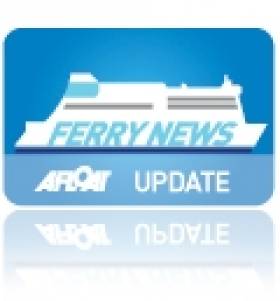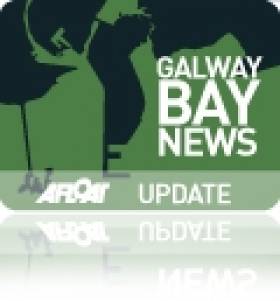Displaying items by tag: Ballyvaughan Bay Hop
Galway Bay Fast Ferry Returns For Two-Week Trial
#GalwayBay - The Ballyvaughan Bay Hop fast ferry service between Galway and Clare will return for a two-week trial this September, as the Galway Independent reports.
Last year the ferry link across Galway Bay from Ballyvaughan in Co Clare to Galway city was trialled to coincide with the Volvo Ocean Race finale and the increased demand for access to the city during the festivities.
This year's trial - using a 12-passenger hard cabin RIB from O'Brien Lines - is intended to access the viability of a permanent fast ferry link across the bay, and how it might integrate with existing local bus and other transport services.
Similar to last summer's service, 10-journey tickets will be on sale for passengers to make a saving, and a special early bird discount is available till 23 August. For more see the Ballyvaughan Bay Hop website HERE.
#GALWAY BAY NEWS - Ballyvaughan Bay Hop will run a fast ferry service between Ballyvaughan in Co Clare and Galway City to coincide with the opening ceremony of the Volvo Ocean Race finale on Saturday 30 June.
As reported last year on Afloat.ie, proposals for the Galway Bay ferry link aimed to half the travel time between the Burren region and Galway City.
Departing from the New Pier in Ballyvaughan, the service will run three times daily facilitating park-and-ride commuters from the North Clare area.
According to the ferry operators, a 10-journey commuter ticket is cheaper than a tank of petrol, making the ferry a more cost-effective and eco-friendly commuting option.
The service will also "provide travellers from Galway with a novel way to visit and explore the Burren, with accommodation and meal value packages with Ballyvaughan eateries and guesthouses available to enhance their trip."
The service will be operated by Rib West on behalf of Ballyvaughan Bay Hop in a fully licenced enclosed passenger RIB as part of a pilot project to establish a community fast passenger service serving the North Clare region.
For more information visit the Ballyvaughan Bay Hop website HERE. There's also a chance to win tickets for the ferry on the Bay Hop Facebook page HERE.






























































